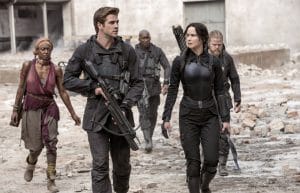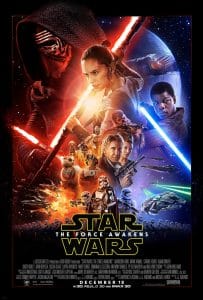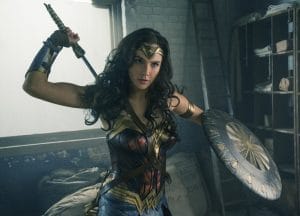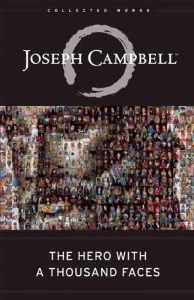We had a fun debate today around the Nerds on Earth virtual water cooler. We chose sides and had an epic battle that would have had Goldblum’s Grandmaster gushing. That’s right, it was Team Captain America vs. Team Iron Man!
And that got me thinking about heroes, and about a hero’s journey. Now I could go on and talk about Joseph Campbell’s “The Hero with a Thousand Faces”, but I won’t.
Obligatory context: Campbell wrote about what he called the monomyth. Basically, all heroic stories go through specific stages that take the hero from humble beginnings to victory over some obstacle. George Lucas was an admirer of Joseph Campbell and has said that Star Wars was heavily influenced by Campbell’s work. Star Wars has a very special place in my heart. I’ve already written a little about it being the genesis of my nerd origin story.
Who doesn’t love a good hero story? Good vs Evil, there’s a struggle, there’s loss and growth, good wins, and the hero lives happily ever after. One of my quirks, however (and there are many), is that there is a particular thing that can happen on the way to happily ever after that I really love; and honestly, we don’t see it often enough for me.
What I really love in a story is… [insert dramatic pause to heighten tension] … when the hero dies. Yep, I like when the hero fails, or at least doesn’t live long enough to see evil defeated.
One reason I like it when the hero dies is that we have so many hero’s journeys already. Star Wars, Harry Potter, Hunger Games, Wonder Woman (check out Maureen Murdock’s Heroine’s Journey), you name it, it follows the outline of the monomyth.
 There’s some solid psychology behind the monomyth, which not coincidentally means there’s some solid marketing behind it. It really resonates with us: it makes us happy and gives us warm fuzzies. Hollywood keeps selling it, because they know we’ll keep buying (not that there’s anything wrong with that). But sometimes I want something different.
There’s some solid psychology behind the monomyth, which not coincidentally means there’s some solid marketing behind it. It really resonates with us: it makes us happy and gives us warm fuzzies. Hollywood keeps selling it, because they know we’ll keep buying (not that there’s anything wrong with that). But sometimes I want something different.
I like to try to guess what’s going to happen in a movie (or tv show, or book). The formula is so familiar that often it isn’t that hard to figure out what’s next. My son is still shocked when I guess what’s going to happen. “How did you know?!” And I’ll tell him about patterns and formulas. Now I don’t mind spoilers, so I can still enjoy something, even if I know what’s going to happen.
Still, it can be very refreshing when someone breaks a pattern and gives you something new. Why was The Sixth Sense so big when it came out? There was a twist that nobody saw coming, so the payoff was huge.It was still emotional, but in a different way.
(This is may be hard to do without spoilers, so consider this your warning. I’ll only reference older movies)
 How did you feel at the end of Braveheart? William Wallace’s death was gut-wrenching (literally), but that wasn’t the end of the story. We knew that Scottland would end up free, even though that didn’t happen on screen, and Wallace didn’t get to see it.
How did you feel at the end of Braveheart? William Wallace’s death was gut-wrenching (literally), but that wasn’t the end of the story. We knew that Scottland would end up free, even though that didn’t happen on screen, and Wallace didn’t get to see it.
But I loved that. It was powerful, and it was inspirational, which is another thing I love about heroes dying, at the end of Star Wars (the original trilogy), the Emporer was dead, Vader had been redeemed, the Empire had been defeated, and their ultimate weapon was destroyed. We see our heroes reunited… and they lived happily ever after (or for at least the next 32 years).
So what did that mean for me, the viewer? Good triumphed over evil, and order was restored. I could rest safely in the knowledge that all was well, good triumphed over evil. There was really nothing else to do. When the story gets all wrapped up with a nice neat bow, it can still be inspiring, but there’s no sense of urgency – after all, everything is fine.
Have you seen John Carpenter’s They Live (a personal favorite)? Nada succeeds in exposing the threat, but when the credits roll, the threat still exists. Not only that, but now there is no champion, no resistance. Somebody needs to do something. And the inference I always take away from that is – hey viewer, what are you going to do?
 I feel inspired, almost compelled to action. Now I’m not going to walk out of the theater and go fight aliens. But I can leave the theater and think about situations in which I may have been lulled into compliance or acceptance of things that I should be working to change.
I feel inspired, almost compelled to action. Now I’m not going to walk out of the theater and go fight aliens. But I can leave the theater and think about situations in which I may have been lulled into compliance or acceptance of things that I should be working to change.
How about Pay It Forward? You can’t watch that movie and not feel moved to make an intentional positive change in someone else’s life. It’s the loss that makes us feel that way.
And that brings me to the biggest reason I like when a hero dies. One of the key stages of the hero’s journey is the Ordeal. In the Ordeal stage, the hero faces death and comes out or that experience transformed. In Star Wars (the original movie), Luke sees Ben die a martyr’s death at Vader’s hand, sacrificing himself so that Luke may live to become a Jedi and ultimately defeat the Empire.
Death in the Ordeal stage is typically death of a mentor or influential character, so the hero can be inspired to go on and be the necessary agent of change and fulfill his or her destiny. But what about when the heroes themselves die? In those cases, I would argue that the hero on screen (or on the page) wasn’t actually the hero of the story in the first place. They were simply the mentor who’s death is meant to inspire the actual hero to emerge transformed; which means the true hero of the story is us, the viewer!
I really love those kinds of stories because I’m not just a viewer, I’m a participant. The story only begins on screen. They leave it to me, and encourage and empower me, to write the rest of the story.
We can be heroes, each of us. We get to decide how we will be transformed by the people and things around us, and what we will do to write our own happily ever after.
Now… Avengers, assemble!


